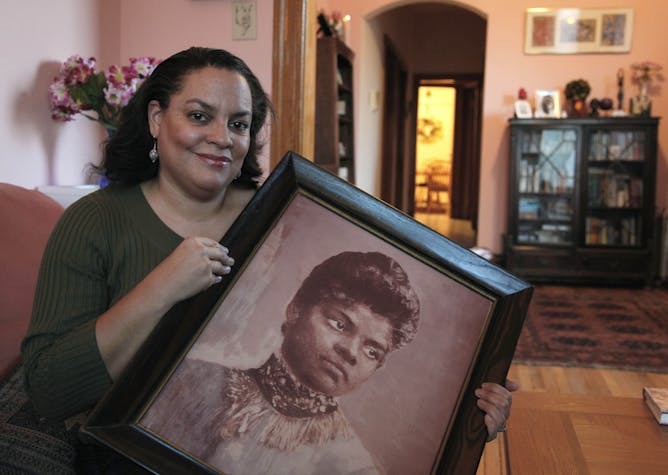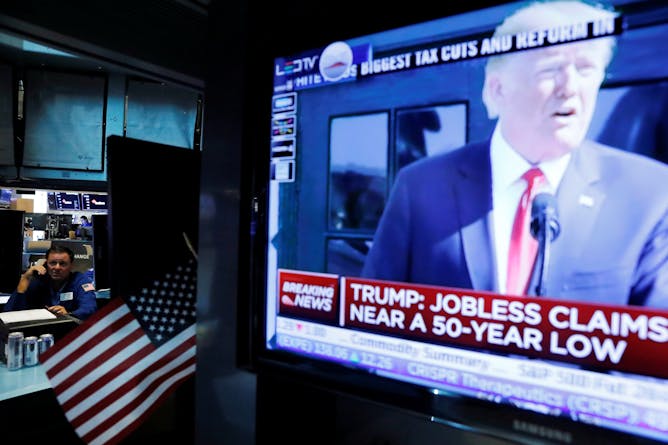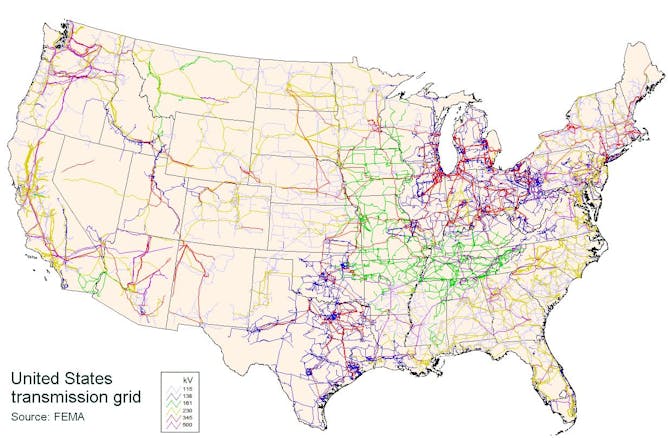Editor's note
|
|
The Chicago City Council recently voted to rename a major thoroughfare Ida B. Wells Drive, the first downtown street in the Windy City’s history to be named after a woman or person of color. It was just the latest breakthrough in an effort to honor the legacy of the investigative journalism pioneer who also fought for civil and voting rights, writes Michelle Duster, Wells’ great-granddaughter.
The latest GDP data is out and it looks like the economy is soaring. But politicians and the media put too much stock into this one number, says economist Sophie Mitra. She explains why we should stop talking about GDP – and what metrics people should focus on instead.
Federal officials have warned that Russian government hackers have infiltrated key computer systems controlling the U.S. electricity grid. Grid-security researchers Manimaran Govindarasu and Adam Hahn dig one level deeper than the headlines to explain what protections are in place now, and what more are needed.
|
Emily Schwartz Greco
Philanthropy + Nonprofits Editor
|

|
|
Top stories
|

Michelle Duster holding a portrait of her great-grandmother, Ida B. Wells.
AP Photo/Charles Rex Arbogast
Michelle Duster, Columbia College Chicago
My great-grandmother, an early civil rights champion, path-breaking journalist and suffrage leader, was among the most influential women of her time.
|

A trader works on the floor of the New York Stock Exchange, as U.S. President Donald Trump speaks on the television shortly after the opening bell.
REUTERS/Lucas Jackson
Sophie Mitra, Fordham University
Economists, politicians and the media watch GDP closely. But it isn't the best way to measure the health of the US economy.
|

The high-voltage lines carrying electricity across the U.S. aren’t the only potential targets.
Rolypolyman
Manimaran Govindarasu, Iowa State University; Adam Hahn, Washington State University
Power utilities' cybersecurity practices may be effective, but need to evolve over time. And all companies operating elements of the grid – even the small ones – should step up.
|
|
|
Education
|
-
Brian N. Williams, University of Virginia; Andrea M. Headley, University of California, Berkeley; Megan LePere-Schloop, The Ohio State University
An incident in which a Smith College employee called police on a black student who 'seemed out of place' is just the latest in a string of cases of racial 'profiling by proxy,' three scholars argue.
|
|
Politics + Society
|
-
Cynthia Prescott, University of North Dakota
Many cities are removing their Confederate statues. But pioneer monuments represent a racist past, too. There are at least 200 of them, and their future is now being debated.
-
Verónica Giménez Béliveau, Universidad de Buenos Aires
Abortion support is high in Argentina, even among Catholics. That puts the church, which opposes an abortion bill up for vote on August 8, in the awkward position of fighting a law its members demand.
|
|
|
|
|
|
|
|
|
|
From our International Editions
|
-
Glenn McGregor, Durham University
And how long before such extreme heatwaves become the 'new norm' across the region?
-
Matt Hayward, University of Newcastle
Translocations have become more frequent in Africa. Elephants are the biggest animals to be moved.
-
Robert Morrison, Queen's University, Ontario
Neil Sedaka's song “The Immigrant” was a top hit in 1975, but today it seems even more relevant, as debates rage in the United States over immigration, repatriation and racism.
|
|
|
|
| |
| |
|
|